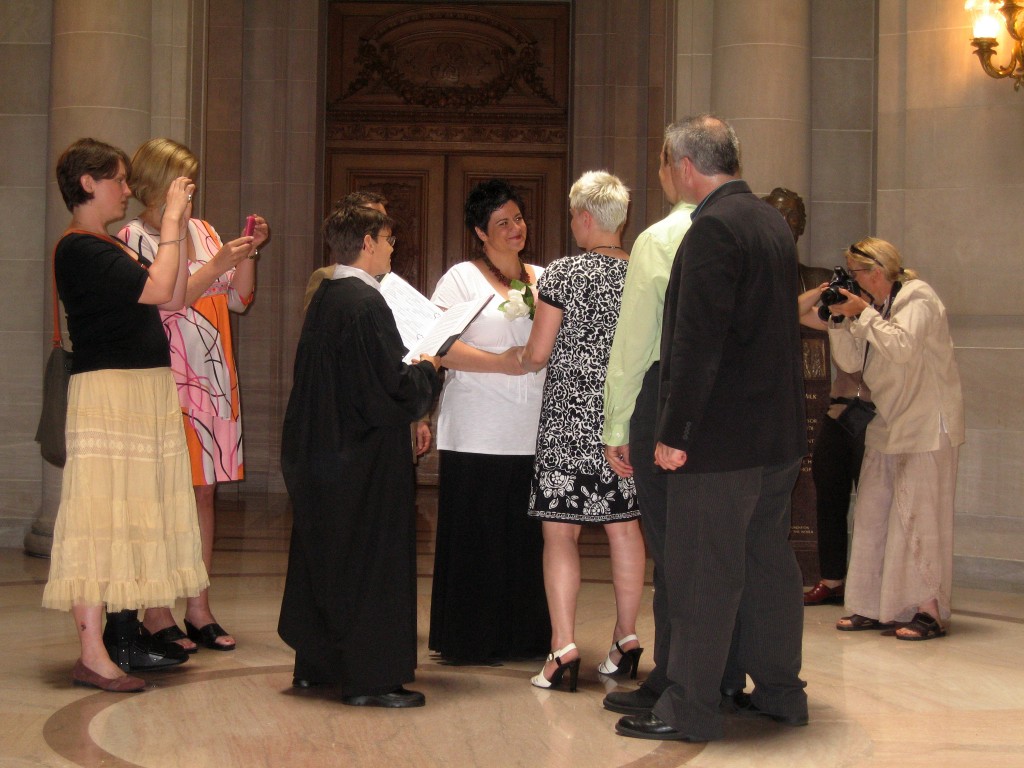
New federal policy on same-sex marriage applied to grantees
In programs that deal with marriage, the federal government now says that grantees must treat as married legally-married same-sex couples, no matter the marriage policy of the state where the grantee is located.
The new requirement, “Federal Recognition of Same-Sex Spouses/Marriages,” is being announced in various federal programs, although not all at once, and applies to current as well as future grantees (it applies also to contractors and to organizations with cooperative agreements). The justification is the US Supreme Court’s action last summer in United States v. Windsor, which invalidated Sec. 3 of the Defense of Marriage Act, which had declared that for federal purposes marriage is limited to opposite-sex couples.
According to the new requirement, whenever the laws or regulations for a funding program use terms such as marriage or spouse, those terms have to be interpreted as including legally-married same-sex persons (but not persons in a civil union or domestic partnership). Thus, for example, a new guidance memo for the Assets for Independence Program (AFI) explains that, where the Assets for Independence Act “defines ‘qualified first-time homebuyer’ as an individual and, if married, the individual’s ‘spouse’ [who is not already a homeowner],” then “spouse” henceforth must be understood to include someone in a legal same-sex marriage, even if a particular AFI program is being operated in a state with a constitutional ban on same-sex marriage.
The Supreme Court did strike down the federal definition of marriage that excluded same-sex couples, so that the federal government instead has to accept the different definitions of marriage in the various states. And the federal government does have to define the terms of eligibility and operation for organizations that receive its money to provide services.
Exactly what all the consequences of this new requirement are for faith-based organizations is not yet clear. Generally, any program law or regulation that uses terms like marriage or spouse is referring to beneficiaries of a service and not to the internal operations of the organization that receives the funds to provide the service. A law, as in the AFI program, might well have to note that a benefit is available to both a person and his or her “spouse,” or only to “married couples.” It is not likely that a program’s law or regulation would say anything at all about the marital status of the employees of the grantee organization, so the required new definition of “marriage” and “spouse” would have no direct effect on the grantee itself.
Areas of concern: Faith-based organizations with a religiously grounded conviction that marriage is limited to opposite-sex couples may regard the new requirement troubling if the federal program involves “marriage” counseling or focuses on strengthening “marriages.” If the organization receives federal funds and among its services provides housing or emergency shelter for “married students” or “married couples or families,” it may discover that its view of who is eligible is no longer shared by the federal government and must be changed. Adoption or foster-care programs that receive federal funding may be affected, as well, depending on the language of the program law and regulations.
There is reason to be concerned, too, that this new declaration of policy, following other federal actions (repeal of Don’t Ask Don’t Tell, the refusal of the President and Attorney General to defend DOMA, other regulatory actions in response to the Supreme Court’s Windsor decision, other executive and regulatory actions promoting LGBT equality, etc.) are intended to create a “national policy” favoring LGBT equality that would in consequence narrow the scope of religious freedom.
Stay tuned!
